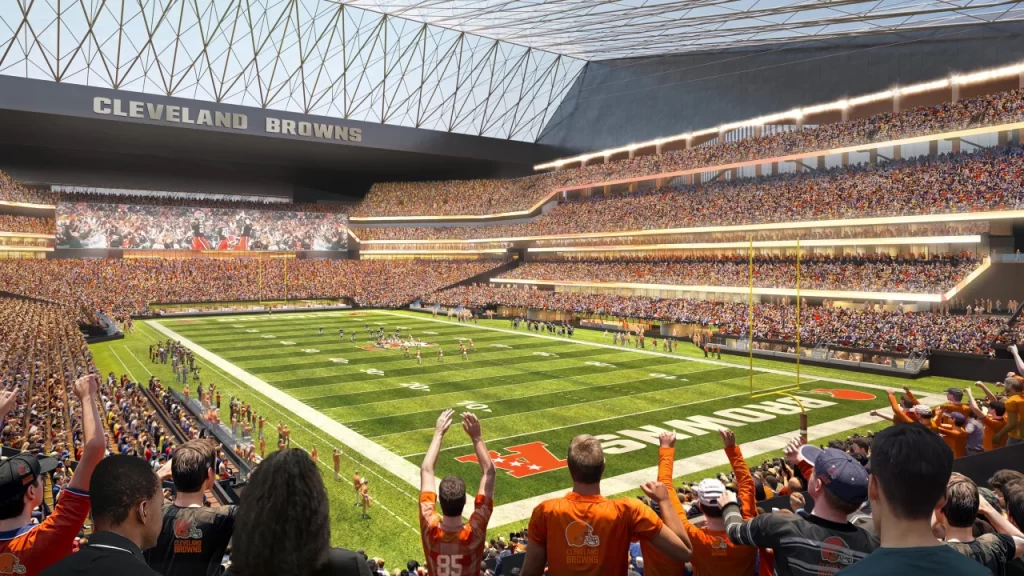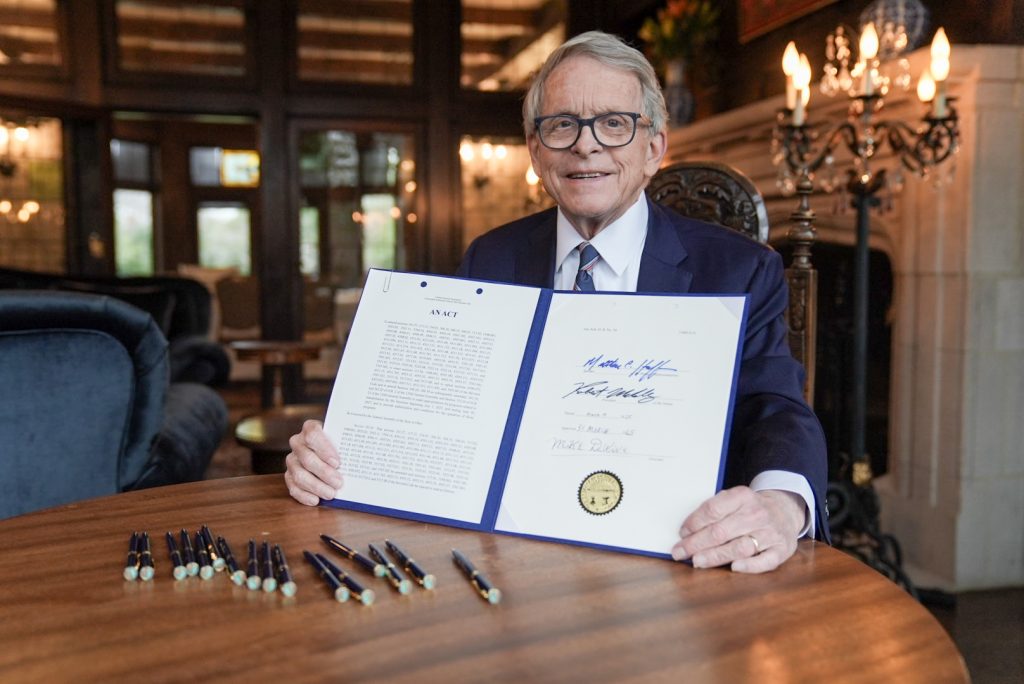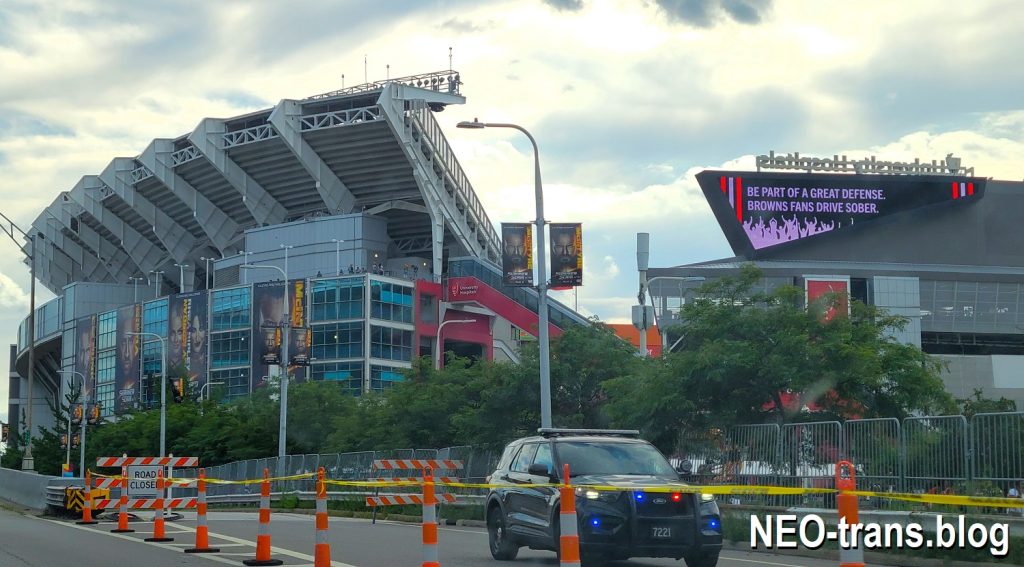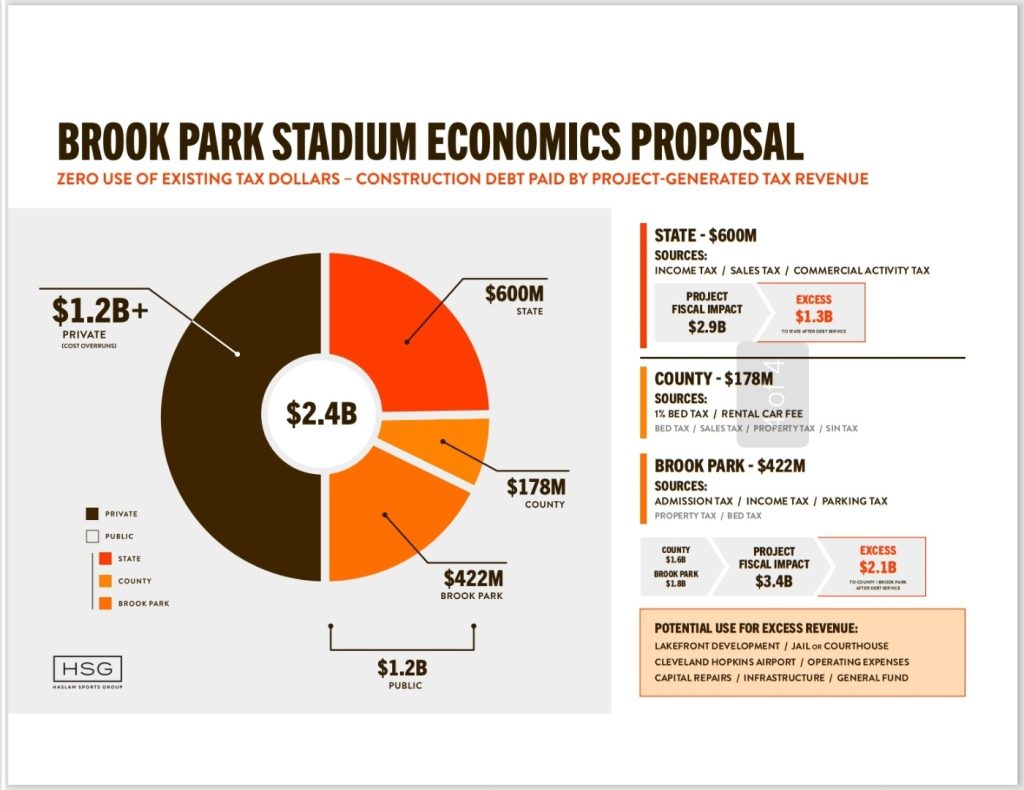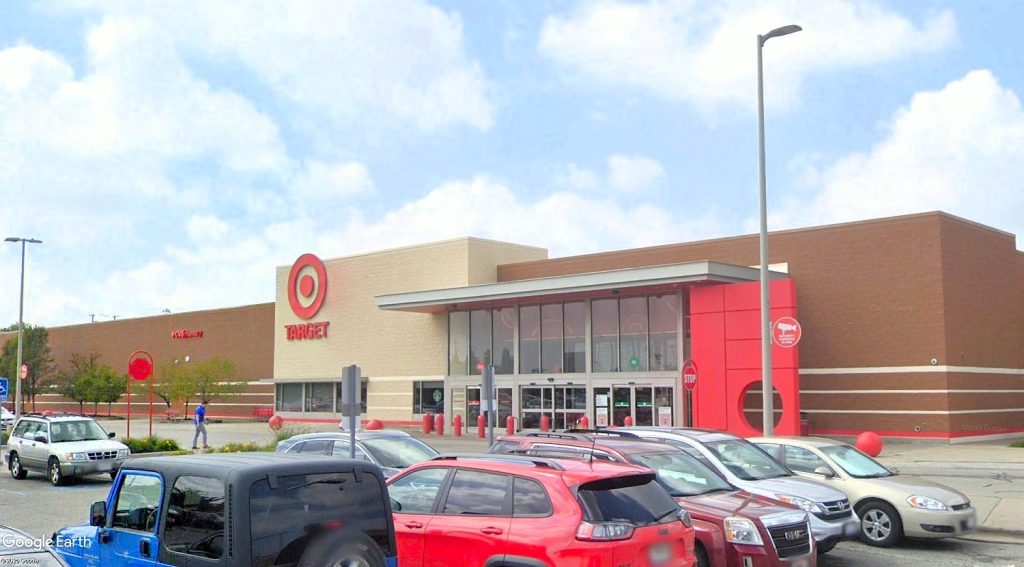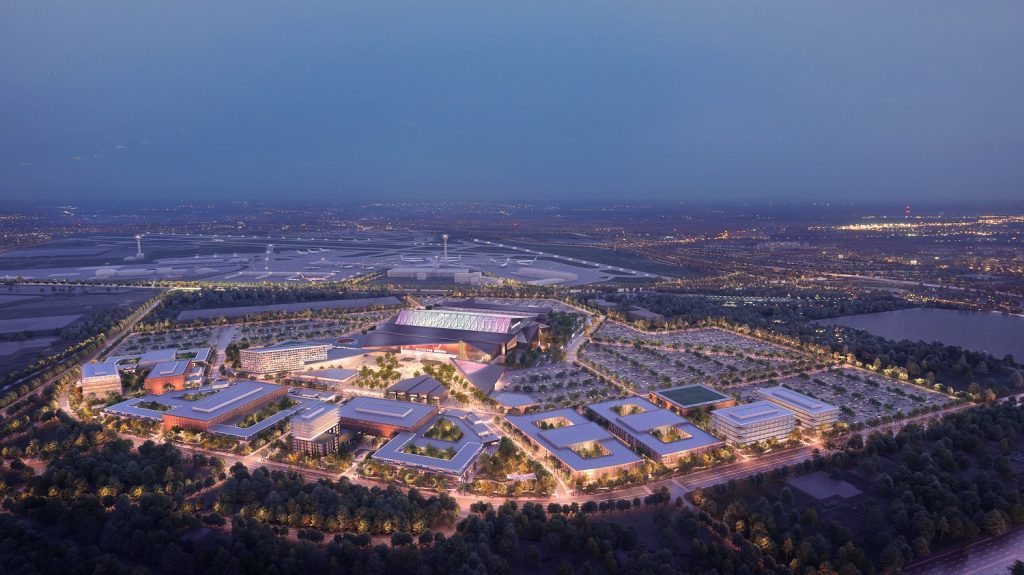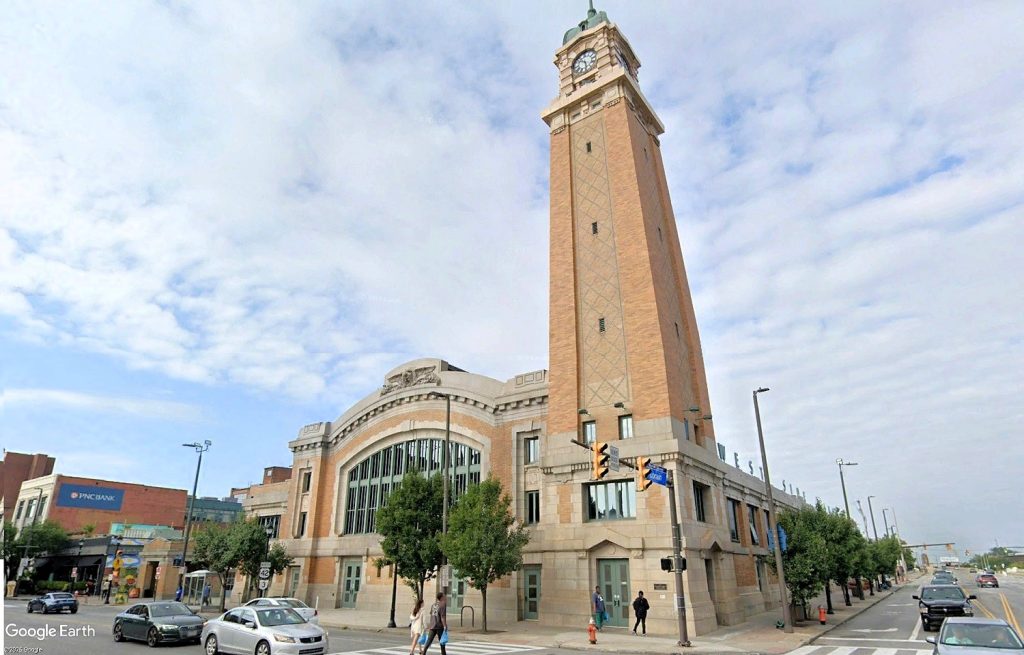Haslams may lack votes to override a DeWine veto
Two extra years on the stadium’s current lease could have offered at least a cushion. The lack of that plus a potential gubernatorial veto and a lack of legislative override votes may be the biggest threats to realizing a $3.6 billion sports-entertainment district planned in the Cleveland suburb of Brook Park.
It starts with the fact that the Cleveland Browns’ lease with the city of Cleveland at the existing Huntington Bank Field on downtown’s lakefront expires at the end of the 2028 football season. Another fact is that the city would never let the Browns’ extend their lease by two more years to improve the chances of the team leaving for Brook Park.
The Haslam Sports Group (HSG), owners of the Browns, don’t have an extra two years to work with to see who will be the next governor of Ohio. They need $600 million from a proposed state-sponsored financing plan approved this June. If approved, that would let them get construction of a $2.4 billion enclosed stadium underway in early 2026 so that it opens in time for the 2029 football season.
Incumbent Republican Gov. Mike DeWine, who cannot seek re-election next year, has come out against contributing $600 million in up-front state financing to the Brook Park stadium. The funding would be part of the upcoming two-year state budget. Meanwhile, GOP lawmakers are proposing to strip $650 million in education funding from the budget.
“I don’t think we can afford to continue to go into the general fund of our budget and take this money,” DeWine told the Ohio Capital Journal. “This (stadium) money directly competes against education. It directly competes against mental health, drug addiction, all these things that we actually need money to try to help people achieve their ultimate goals.”
If DeWine supported the $600 million in up-front funding for the Brook Park stadium, HSG would likely have enough votes in the Ohio General Assembly to pass it with a simple majority. Instead, he proposed doubling state taxes on online sports betting and using the revenues to make relatively small-scale investments in sports facilities and programs.
On the other hand, his opposition — including a possible veto — to HSG’s funding proposal could also cause removal of the funding before the legislature votes in a couple of months on the a proposed biennial budget that starts July 1, 2025 and ends June 30, 2027.
But if it remains in the final bill, there’s a strong possibility that DeWine could veto it. If he does, it requires a 3/5 majority vote in both the Ohio Senate and Ohio House of Representatives to override a governor’s veto — and that supermajority may not exist.
It is probable that all of the Senate and House Democrats will vote to sustain a veto to support Cleveland Mayor Justin Bibb and Cuyahoga County Executive Chris Ronayne, both Democrats who oppose the Brook Park stadium. But is also probable that at least a few Republicans, especially from rural districts, will join with DeWine in the name of protecting the state budget.
In the 33-member Ohio Senate, 11 members are Democrats. If all of the Democrats plus just one Republican votes to sustain a DeWine veto, an override will fail. Things are more clear in the 99-member Ohio House. There, 34 members are Democrats. If all of them vote to sustain a veto, an override fails.
Last week, State Reps. Dani Isaacsohn (D-Cincinnati), Dontavius Jarrells (D-Columbus), and Terrence Upchurch (D-Cleveland) united in calling for a pause on the proposed stadium financing plan that could cost Ohio taxpayers more than $1 billion over the next three decades.
“The proposed financing structure relies almost entirely on state taxpayer dollars,” said Upchurch in a written statement. “Elected officials have a responsibility to the people we represent – not to developers, not to sports owners, but to working families.”
HSG representatives point out that the stadium cost will be split 50/50 public/private. But a proposed stadium-area development district of shops, restaurants, hotels, apartments, offices and entertainment would be entirely privately funded, HSG reps have said.
Ironically, HSG was all-in on renovating the lakefront stadium until last year. That changed when the National Football League (NFL) began considering allowing private equity fund investments into NFL franchises like the Browns. In February 2024, NEOtrans broke the story that HSG was seeking to buy 176 acres of land at 18300 Snow Rd. in Brook Park.
The new NFL policy, finalized by the league last August, allows anywhere from a 3 to 10 percent equity stake in each NFL franchise. For the Browns, valued at $5.15 billion in 2024, that represents an investment of about $154.5 million to $515 million. With a new enclosed stadium, development and parking under HSG’s control, the value of the Browns would surely increase.
This week at the NFL Annual Meeting in Palm Beach, FL, HSG owner Jimmy Haslam told reporters that they are keeping a $1.2 billion renovation of the 1999-built lakefront stadium active as a “Plan B” option.
“They still want Brook Park, but their spine is substantially less stiff than it was in January,” said an HSG insider today who spoke on the condition of anonymity.
“I told you this could happen,” said Cleveland City Council President Blaine Griffin. “A ‘Plan B’ has always been part of the picture.”
END

